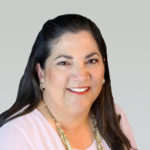Click below to listen to Episode 15 – Setting Financial Goals
Subscribe: Apple Podcasts | Google Podcasts | Spotify | Amazon Music | Stitcher | RSS | More
Episode 15 – Setting Financial Goals
What are your financial goals and what have you done to help make them happen? This week, Bob and Mary Jo offer tips and advice that may give an extra advantage when it comes to fulfilling financial goals, including the SMART acronym:
-
Specific
-
Measurable
-
Achievable
-
Relevant
-
Timely
One of the best things one can do when it comes to any goal is to be very specific and put them in writing. When you identify your goals and write them down, you are making a commitment to them. Writing down your goals, desires, and beliefs is very much a Biblical Principle, as you will see from the scriptures shared in this episode.
HOSTED BY: Bob Barber, CWS® and Mary Jo Lyons, CFP®
Mentioned In This Episode
Want to ask a question about your specific situation? Schedule a complimentary 15 minute phone call.
EPISODE TRANSCRIPT
[INTRODUCTION]
Bob: Welcome to Christian Financial Perspectives, a podcast where we talk about ways to integrate your faith with your finances. This is Bob Barber.
Mary Jo: And I’m Mary Jo Lyons.
Bob: Are you ready to learn how to apply biblical wisdom to everyday financial decisions?
Mary Jo: Join us as we look at integrating your faith with your finances. If it’s your first time listening, welcome to our podcast, and if you’re a returning listener, welcome back.
[EPISODE]
Mary Jo:
Well, it’s getting to be that time of year when we start thinking about the new year and what’s in store for us. This week’s topic is going to be setting financial goals. As always, we want to start the show with some relevant scriptures. As we have shared in the past, the Bible has much to say about money and setting financial goals.
Bob:
Mary Jo, one of the scriptures I thought, actually there’s two of them in Deuteronomy, that has to do with setting spiritual goals as well as financial goals. This first one has more to do with setting spiritual goals for those of us that are believers, and it’s from Deuteronomy 6:9 and 11:20, “You shall write them on the doorframes of your house and on your town gates.” It’s really about putting those goals in writing and seeing them on a daily basis. Because you think about it, you pass through a door of your house every day.
Mary Jo:
Well, that’s true, and the Bible mentions writing them down on several places. In Proverbs 3:3 it says, “Do not let kindness and truth leave you. Bind them around your neck. Write them on a tablet of your heart.”
Bob:
And here’s another really good scripture out of Isaiah 38 that hits right to the heart about writing it down. “Now go. Write it on a tablet before them and inscribe it on a scroll that it may serve in the time to come as a witness forever.” That was a little bit of a tongue twister.
Mary Jo:
Biblically, the act of writing means a great deal. It gives it priority, attention, and creates contemplation. So writing down your goals, desires, and beliefs is very much a biblical principles, as you can see from a few of the scriptures above. When you identify your goals and write them down, you’re making a commitment to them.
Bob:
Mary Jo, I’ve known about this Harvard Business School study that was done many, many years ago. And I’ve mentioned this over the years as I’ve written about setting financial goals and spoken about it. So, this is an interesting study to always bring up and share. 83% of the population does not have any clearly defined goals, much less financial. 14% have goals, but they’ve never written them down. 3% of the population has goals that are written down. Did you just hear that? Only 3% of the population actually writes down their goals.
Mary Jo:
That’s amazing.
Bob:
This study concluded that the 3% of people that write down their goals were earning an astounding 10 times more money than those of the 83% group. Remember, the 83% is the population that doesn’t have any clearly defined goals, much less financial. In addition, similar studies have shown that individuals with written goals also tend to have better health and happier marriages than those without them.
Mary Jo:
Bob, it’s really interesting the fact about writing down your goals and how important that is. I’ve spent a lot of my life in the corporate world, and I know some of our listeners are out there working in the corporate world, but a lot of our listeners are self employed or maybe stay at home moms or retired, and they forget about how important it is to think about your goals. Be very specific about them, and write them down. And that’s how things actually begin to materialize. Another thing in the corporate world, we learned some methodologies for goal setting. One of them that is very common, and most of our listeners have probably heard about, is smart goals. They’re specific, measurable, achievable, relevant, and timely. And I know Bob, you have a different method that you like to talk about. What is that?
Bob:
Well, it’s very similar to your method that you just mentioned. I always called mine SMAC S-M-A-C. That acronym stands for the same words, that the smart stands for, like specific, measurable, achievable, and compatible. It’s so important, as we set those goals, that they are compatible to us. As an example, I’m 56 years old and if I say, I want to go run a four minute mile, that’s really not compatible or achievable. I mean, I’ve gotta be realistic.
Mary Jo:
I’m not gonna touch that, Bob. That’s not kind, and we’re supposed to be kind, right?
Bob:
Exactly.
Mary Jo:
So when it comes to your goals, be very specific. By putting them in writing, I have reached nearly a 100% of my written goals over the years. It’s one of those steps that is so critical for success. Bob, I know you have a form that you use. Why don’t you tell our listeners about what that looks like?
Bob:
Mary Jo, I have a form that I use that looks at the goals from five to seven different angles. One is spiritually. What do I want to accomplish in 2019 and what will I do to accomplish the goal? Physically, what do I want and how will I accomplish it? Let’s say, physically, I want to lose 10 pounds. Well, how am I going to accomplish this scope? Give up drinking sweet tea all the time. Something simple like that. Financially, maybe I want to pay off a debt or grow my cash reserves to a certain amount, and what am I going to do to accomplish that goal. Relationally, I like this one because this would be with my family, with my wife, how do I want to improve our relationship and what will I do to accomplish that? Mentally, what am I going to do? And that might be reading several books, and how am I going to accomplish that goal? Maybe go to a workshop or a seminar, and then professionally, what do I want to do to accomplish a goal? So again, it’s spiritually, physically, financially, relationally, mentally, and professionally.
Mary Jo:
When it comes to setting financial goals, there are some other steps to consider as well. Before starting down the path of financial planning, which is my specialty. I always tell my clients it’s always helpful to first identify what matters most to you. What do you want your financial future to look like? I think you have to imagine that and give some specifics around that before you really start down the path of planning, so you know where you’re going to go.
Bob:
It’s also important to think about what your short term goals, as well as your longterm goals, what you want those to be. Like longterm goals might be for big ticket items like a home, educational funding, or retirement, where a short term goal might be just to pay off a low credit card balance over the next six months.
Mary Jo:
And it’s common to have competing goals or competing timeframes for some of your goals. So you first have to do some prioritizing. It’s okay to be saving for multiple goals at the same time, but I would say that creating an emergency fund should be at the top of that list if you’ve not already done so. Without this, you may continue to rely on credit or borrow from your retirement accounts, so that’s not going to help you accomplish your other goals. It might sound a little bit odd, but I think that needs to be at the top of the list, and it will help you then accomplish the other goals.
Bob:
I like this fourth one of creating a realistic budget and sticking to it. If it’s not a realistic budget, it’s going to be very hard to stick to. If you’re used to spending $200 a month on eating out, and now you’re going to knock that down to $40 a month or $10 a week, that’s not a realistic budget, but maybe if you’ve been spending $200 and you could bring that down to $125, and then you can stick to it. Create a realistic goal and budget, monitor it periodically, and adjust it as needed and really track your spending.
Mary Jo:
That’s a good one. You also want to automate both your payments and your savings. By automating your savings, you’re paying yourself first and by automating your payments, you’re going to avoid any late fees and penalties. Those can just kind of wreak havoc on your spending plan and your budget faster than anything.
Bob:
If your employer offers a 401k or a 403b or thrift savings plan, especially if they’re going to match your contribution, this is something that you want to do here at the beginning of the year if you’ve not done so already. And just think about the match. If you’re putting in $50 and they’re matching you for that, you’re making a 100% return from day one on your money.
Mary Jo:
People ask me all the time. Well, should I do that even if I have these other financial goals that I’m trying to do. And I always say yes, because if there’s an employer match, that’s found money. And then you’re also reducing your taxable, take home pay. By clicking that box to fund the 401k, it’s really not going to impact your take home pay all that much. I think you’d be surprised, and it’s paying yourself first. If you’re married, you also want to seek spousal unity. It’s important that you share the same goals. That way, you’re much more likely to achieve them if you’re both on the same page and you’re both willing to sacrifice for a shared objective.
Bob:
And number eight, if you’re going to obsess about something, this is a good thing to obsess about.
Mary Jo:
Bob, I always have to laugh here and I’m going to make fun of my husband at his expense. And I know he’ll take it in good stride as he listens to our podcast, but he has a little bit of OCD. So he obsesses about a lot. And it was really interesting when we first started tracking our spending and our budgeting and especially our savings and he started to see that number grow, it really did become something that he could finally obsess about. So instead of obsessing about stuff and buying things, he began to obsess about our savings. That was a win for me. once you start writing it down and you see it and you see it grow, it’s really easy to focus on that growth and you want to continue to see it grow. So, you’re much more likely to stick to it.
Bob:
So maybe we could rephrase that a little bit. If you’re going to obsess about getting out of debt and saving, that’s not a bad thing to obsess about.
Mary Jo:
That’s right.
Bob:
One of the things that you can do here at the beginning of the year is do a financial health score check. And you can do that right on our website ciswealth.com. It’s right under the area that click on for our podcast. It says, what’s your financial health score. And you can do this completely on your own in the comfort of your home, over the internet. And then it will generate a score and actually send it to us. You can have a meeting with either Mary Jo or myself to go over that score and look at things that you could do to help you better in your financial situation.
Mary Jo:
And here we are, it’s already the first of the year. If you don’t have your goals for the year written down, this is your opportunity to do so. Cause if you don’t write them down, the year is just going to pass you by. I can share that from experience. So I do want to encourage our listeners, each of you, to write down your financial goals, as well as your other goals and see what a difference just that one step will make for your success in accomplishing those goals in the following years.
Bob:
Like we mentioned at the beginning of the program to write them down, and then I shared several areas of goal setting, from relationship to financial to spiritual to mental, you write all these down in one little form. I like to do it in about a four inch by six inch form, make copies of them. Laminate three or four, even five of them. I put one in my shower. So I see it in the morning, one by my bathroom mirror, one in my Bible and even one next to my keyboard at work so that I’m always being reminded of these goals. I’ve just noticed by doing this, it really keeps it top of mind awareness.
Mary Jo:
Oh, that’s awesome. Bob, I love the putting one in your Bible cause like to read my Bible every day. So, that’s a good visual reminder and helps you. When you pray on those goals, you’re going to make it closer to your heart and be just much more committed to it. Clients often ask us well, so what other financial goals should they be thinking about besides the obvious ones? And I always say, well, what might be obvious to me may not be obvious to you. So I would encourage everyone to include the following in their list of goals. The first one is, and you heard me mention it earlier, have a three month emergency fund. And as you age, you want to expand this. So by the time you’re 50, you probably want to have about a year’s worth of expenses and savings. The reason I say that is cause that’s more than what the rule of thumb is, but as you age, if you’re employed, it takes you much longer to replace that salary, and age discrimination is real. So, it’s also going to take you longer to find a new job if you lose the one you have. So, you definitely want to expand that emergency fund plus your overall expenses, and your financial footprint is bigger, so you need a bigger savings.
Bob:
I’d like to say something here about that, too, Mary Jo, that health issues strike so many of us that are above 50. Also with those health issues, it’s good to have cash reserves for times like that.
Mary Jo:
Well, and that brings up “Cash Is King”. So you want to develop a cash mindset and avoid the use of credit. And in trying to decide how to tackle debt, this is one I get asked about all the time. Well, which one do I pay first? Or I have this really small balance. Should I pay that first? Well, in my mind, it boils down to the cost of money. Pay off the highest rate first. So, put all your resources to the most expensive debt and then just kind of begin to move it down. But the ones that are lower interest rate, even if it’s a smaller balance, it’s costing you less to have that debt. So, pay the most expensive ones down first.
Bob:
These last three things are simplify your life, avoid stuff. None of us need more stuff here in America. Believe me, we got more than most of us need and that stuff can cost you dearly. It makes you less mobile. If it’s time to go on that mission trip, you have to transport it, store it, ensure all of that stuff that costs money. So life is best when live through experiences and not stuff, not material possessions. Next, develop a giving mindset this year. God loves a cheerful giver. Giving releases the bondage that materialism can have over you. Keep your financial life in as much order as possible, include that in an estate plan, protection is needed, et cetera, keeping that life in financial order. If you’re married, many times, there’s one of you that has more of the organizational skills than the other and allow them to help you with that if you’re not naturally an organized person. As we come to the end, there’s an old saying about goal setting that I’ve used for many years. Aim for nothing and that is exactly what you’ll hit, or aim for the stars and you’ll hit the moon.
Mary Jo:
I love that Bob. That’s awesome. As we wrap up today’s episode about setting financial goals, there’s one more scripture that we want to leave you with and it’s from Proverbs 4:25-27, “Look straight ahead and fix your eyes on what lies before you. Mark out a straight path with your feet. Stay on the safe path. Don’t get sidetracked. Keep your feet from following evil.” That’s all for now.
[CONCLUSION]
Mary Jo: You’ve been listening to Christian Financial Perspectives. Join us as we explore more about how to apply biblical wisdom to your financial situations.
Bob: To make sure you don’t miss any of our podcasts, you can subscribe to Christian Financial Perspectives on iTunes, Google Play, or Stitcher. To learn more about integrating your faith with your finances, visit out website at ciswealth.com or call 830-609-6986.
Mary Jo: That’s all for now.
[DISCLOSURES]
Comments from today’s show are for informational purposes only and not to be considered investment advice or recommendations to buy or sell any company that may have been mentioned or discussed. The opinions expressed are solely those of the hosts, Bob Barber and Mary Jo Lyons. Bob and Mary Jo do not provide tax advice and encourage you to seek guidance from a tax professional. Investment advisory services offered through Christian Investment Advisors Inc. DBA Christian Financial Advisors, a registered investment advisor.











